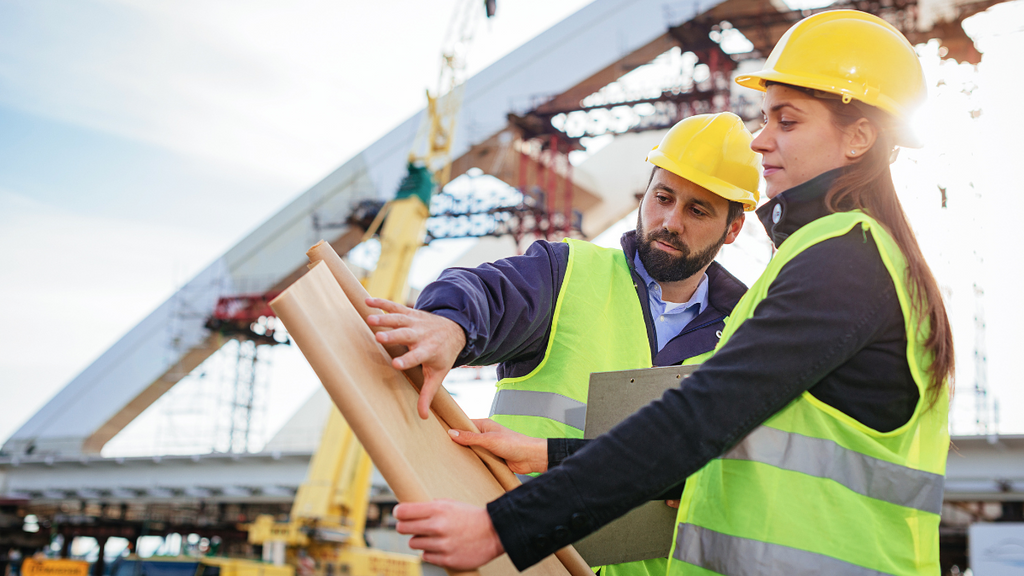The 3-Minute Rule for Geotheta
Table of ContentsExamine This Report on GeothetaGeotheta Fundamentals ExplainedThe smart Trick of Geotheta That Nobody is DiscussingGeotheta Can Be Fun For EveryoneUnknown Facts About Geotheta

They conduct site investigations, collect examples, do lab examinations, and assess data to examine the viability of the ground for construction projects - Geo Tech Engineer. Based upon their searchings for, geotechnical designers offer suggestions for structure style, slope stability, retaining frameworks, and reduction of geotechnical hazards. They team up with other professionals, such as engineers, structural engineers, and building groups, to make certain that geotechnical considerations are integrated into the total project design and execution
By evaluating the habits and buildings of dirt and rock, they can recognize potential geotechnical hazards such as landslides, dirt negotiation, or slope instability. Their know-how assists stop failings or crashes that can threaten lives and residential or commercial property. Below are some thorough responsibilities and responsibilities of a geotechnical designer: Site Investigation: Geotechnical designers conduct site investigations to gather information on subsurface problems.
They analyze the data to recognize the residential properties and actions of the soil and rock, including their stamina, leaks in the structure, compaction characteristics, and groundwater conditions. Geotechnical Evaluation and Design: Geotechnical designers assess the information gathered during site investigations to evaluate the stability and viability of the website for construction tasks. They execute geotechnical calculations and modeling to review elements such as bearing capacity, settlement, incline stability, side planet pressures, and groundwater flow.
3 Easy Facts About Geotheta Shown
Foundation Style: Geotechnical engineers play an important function in making foundations that can safely support the intended framework. They analyze the dirt conditions and tons needs to establish the ideal structure type, such as shallow structures (e.g., footings), deep foundations (e.g (https://www.ted.com/profiles/47432098)., heaps), or specialized techniques like dirt improvement. They think about elements such as settlement limits, birthing ability, and soil-structure communication to establish ideal foundation styles
They assess construction strategies, display site tasks, and perform area examinations to confirm that the layout referrals are complied with. If unforeseen geotechnical concerns arise, they assess the scenario and provide recommendations for removal or adjustments to the layout. Danger Evaluation and Mitigation: Geotechnical designers assess geotechnical hazards and threats connected with the task website, such as landslides, liquefaction, or dirt disintegration.

Partnership and Interaction: Geotechnical engineers work closely with other specialists associated with a job, such as engineers, structural engineers, and building and construction groups. Reliable communication and collaboration are important to incorporate geotechnical considerations right into the overall task style and construction procedure. Geotechnical engineers supply technical know-how, answer inquiries, and make certain that geotechnical requirements are met.
Geotheta Fundamentals Explained
Here are some kinds of geotechnical designers: Structure Engineer: Foundation engineers specialize in creating and assessing foundations for structures. They examine the dirt conditions, load requirements, and site attributes to establish the most suitable foundation type and layout, such as superficial foundations, deep structures, or specialized strategies like heap foundations.
They assess the elements influencing slope security, such as dirt residential properties, groundwater problems, and slope geometry, and develop methods to protect against incline failings and alleviate risks. Earthquake Engineer: Quake designers concentrate on assessing and developing frameworks to withstand seismic forces. They assess the seismic risk of a site, evaluate soil liquefaction possibility, and create seismic layout requirements to guarantee the security and strength of structures during earthquakes.
They perform area screening, accumulate examples, and evaluate the collected information to identify the dirt buildings, geologic developments, and groundwater conditions at a anchor site. Geotechnical Instrumentation Engineer: Geotechnical instrumentation designers concentrate on monitoring and determining the actions of dirt, rock, and structures. They mount and maintain instrumentation systems that check variables such as dirt settlement, groundwater degrees, slope activities, and structural displacements to analyze performance and supply very early warnings of possible problems.
8 Simple Techniques For Geotheta
They carry out tests such as triaxial tests, loan consolidation tests, direct shear examinations, and leaks in the structure tests to collect information for geotechnical evaluation and design. Geosynthetics Engineer: Geosynthetics engineers focus on the layout and application of geosynthetic materials, such as geotextiles, geogrids, and geomembranes. They use these products to boost soil security, reinforce inclines, give drainage solutions, and control disintegration.
They have a tendency to be investigatory people, which implies they're intellectual, introspective, and investigative. They are curious, methodical, sensible, logical, and logical. Some of them are likewise social, indicating they're kind, charitable, participating, person, caring, helpful, empathetic, sensible, and pleasant - Geo Tech Engineering.
In the workplace atmosphere, geotechnical engineers use specialized software application tools to carry out computations, produce designs, and evaluate data. They prepare records, review project requirements, connect with customers and team members, and coordinate job activities. The office setting gives a helpful atmosphere for study, analysis, and partnership with other professionals associated with the project.
Geotheta - Truths
They often go to task websites to perform website examinations, assess geotechnical problems, and collect data for evaluation. These brows through involve traveling to different areas, sometimes in remote or tough terrains. Geotechnical engineers might carry out dirt sampling, conduct tests, and display building tasks to make sure that the geotechnical facets of the project are being carried out correctly.
Geotechnical engineers likewise work in specialized geotechnical labs. Geotechnical research laboratory engineers function thoroughly in these settings, dealing with testing devices, operating instruments, and recording data.